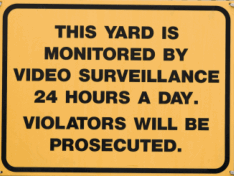 ClaimCare, Inc - June 15, 2010
ClaimCare, Inc - June 15, 2010 - According to various media reports from Washington, action will come too late regarding the June 6 Senate announcement that it is ready to initiate a 19-month Medicare "doc fix." This means cash-flow problems will affect doctors across the country. Senator Charles Schumer (D-N.Y.) said at a press conference that the Senate is expected to have 60 votes to pass the bill "early next week (week of June 14)." But even if the votes come then, more than likely it will take several days for the bill to be passed by the House and signed into law by the President.
On Monday, June 14th Medicare responded to this continued delay by Congress by deciding that it will extend its freeze on processing claims with June dates of service until Friday, June 18th. It is possible that Congress will reverse the massive Medicare fee reduction by that date. Given, however, the time line outlined by Senator Schumer, it is unlikely the fix will be completed by that time.
So, on Monday, June 21st, Medicare may well begin processing June 2010 claims using the 21.3% fee reduction that went into effect on June 1. However, it appears highly likely that within two weeks Congress will retroactively reverse the fee cut. This will result in Medicare claims being reprocessed, causing new "make-up payment" problems for providers. It is a situation that leaves providers to ask some important questions - and to make some important medical billing decisions.
Question/Decision #1: Should your medical billing department continue submitting your Medicare claims as usual - or should you hold them until Congress eliminates the 21.3% fee reduction?
If you submit your claims as usual, then you will receive payments as usual - but at the reduced fee rate. When Congress does eliminate the fee reduction, you will have a lot of work to do when Medicare reprocesses your claims. This work includes auditing to ensure Medicare has indeed made all of the make-up payments they should. It also includes responding to patients' questions and concerns about receiving two Explanation of Benefits (EOBs) from Medicare regarding their charges. The situation will be exacerbated when Medicare automatically crosses these lower-paid claims to secondary insurance payers. EOBs and payments involving secondary (and possibly tertiary) insurance payers will cause further confusion and complications for your office - and for your patients.
If you hold your Medicare patient claims and then submit them after Congress passes the "doc fix" bill, you will not get hit with the 21.3% cut - but you will get paid later than usual. You also will have a much simpler time in terms of ensuring all payments are correct from both Medicare and secondary payers. Also, patients will receive only a single EOB for the dates of service during this "waiting" time period.
Question/Decision #2: Should you collect co-insurance from Medicare patients under the fee schedule that was in place prior to June 1, 2010 - or under the significantly reduced fee schedule?
If you collect patients' 20% Medicare co-insurance under the reduced fee schedule and the reduction is reversed by Congress, then under Medicare rules you will need to bill patients for any extra amount they owe over $5.00. (You are not forced to try and collect balances that will cost more to pursue than will be yielded in revenue). This will lead to additional expense and patient confusion.
On the other hand, if you collect co-insurance amounts in accordance with the pre-June 1 fee schedule and Congress does not reverse the fee reduction, then you will need to reimburse patients any overpayments greater than $5.00. (The same financially reasonable principle applies to patient refunds.) Since it is unlikely that the fee reduction will stand, this is an unlikely outcome.
Question/Decision #3: Most likely, you have already filed some June 2010 Medicare patient claims. These will start being processed on Tuesday and will generate many of the issues mentioned above. (The decisions you make now regard being able to minimize the complications rather than being able to avoid them completely.) These already-filed claims force you to ask and decide: Should you bill patients and secondary insurance payers for the June 1 to June 14 dates of service you submitted (and for which Medicare will begin receiving payment over the coming days) or should you wait for these claims to be reprocessed and paid correctly after Congress reverses the 21.3% Medicare fee cut?
The pros and cons outlined for the questions/decisions in #1 and #2 also apply to #3. If you proceed with billing patients (and secondary insurances that do not automatically cross over), you will have confused patients who receive an initial statement from you and then receive a second statement from you for additional money after Congress retroactively reverses the fee cut.
On the other hand, not billing patients and secondary insurances until after Congress acts will delay your collections - but will lead to much less patient and office confusion.
My Recommendation: Every practice must make its own decision about these issues, but a decision must indeed be made. If you can handle the temporary cash flow reduction, then my recommendation is:
- Hold your claims until Congress retroactively reverses the Medicare fee cut;
- Collect patient co-insurance under the pre-June 2010 fee schedule;
- Do not bill patients or secondary insurance for the June 1, 2010 to June 18, 2010 dates of service for which you will start receiving payments over the coming days. Instead, bill the patients and secondary insurances after these dates of service are reprocessed when Congress reverses the Medicare fee cut.
This approach will minimize confusion in the practice and among your patients. It will also minimize the chance you are underpaid for your claims.
_________
Copyright 2010 by Carl Mays II. Carl is President and CEO of ClaimCare Medical Billing Service, one of the largest medical billing companies in the United States.
 Many significant coding and billing changes have been introduced in 2012 for cardiologists, particularly electrophysiologists (EPs). The ClaimCare Medical Billing Company has created a 30 minute training video to bring cardiologists and cardiology practice staff members up to speed on the key 2012 Cardiology Coding and Billing Changes they need to understand to insure they have no compliance, billing or collection issues as a result of these new rules.
Many significant coding and billing changes have been introduced in 2012 for cardiologists, particularly electrophysiologists (EPs). The ClaimCare Medical Billing Company has created a 30 minute training video to bring cardiologists and cardiology practice staff members up to speed on the key 2012 Cardiology Coding and Billing Changes they need to understand to insure they have no compliance, billing or collection issues as a result of these new rules.
 In kicking-off 2012,
In kicking-off 2012,  ClaimCare, Inc - June 15, 2010 - According to various media reports from Washington, action will come too late regarding the June 6 Senate announcement that it is ready to initiate a 19-month Medicare "doc fix." This means cash-flow problems will affect doctors across the country. Senator Charles Schumer (D-N.Y.) said at a press conference that the Senate is expected to have 60 votes to pass the bill "early next week (week of June 14)." But even if the votes come then, more than likely it will take several days for the bill to be passed by the House and signed into law by the President.
ClaimCare, Inc - June 15, 2010 - According to various media reports from Washington, action will come too late regarding the June 6 Senate announcement that it is ready to initiate a 19-month Medicare "doc fix." This means cash-flow problems will affect doctors across the country. Senator Charles Schumer (D-N.Y.) said at a press conference that the Senate is expected to have 60 votes to pass the bill "early next week (week of June 14)." But even if the votes come then, more than likely it will take several days for the bill to be passed by the House and signed into law by the President.
 Physicians continue to see their collections, cashflow and emotions whipped around like a rag doll in the mouth of a rottweiler. Congress failed to act before the June 1, 2010 deadline. Once again physicians are "officially" under a new Medicare fee schedule that has an average reduction of over 21%. In reaction, Medicare will once more hold claims for the first 10 business days of the month (for June dates of service).
Physicians continue to see their collections, cashflow and emotions whipped around like a rag doll in the mouth of a rottweiler. Congress failed to act before the June 1, 2010 deadline. Once again physicians are "officially" under a new Medicare fee schedule that has an average reduction of over 21%. In reaction, Medicare will once more hold claims for the first 10 business days of the month (for June dates of service).  Medical billing offices / Managers often find themselves in need of extra "helping hands" for a variety of reasons including:
Medical billing offices / Managers often find themselves in need of extra "helping hands" for a variety of reasons including:
 Everyone in the
Everyone in the  Scale is key when selecting a medical billing company. By scale I mean that the medical billing company should have tens and hundreds of providers across whom large, necessary investments can be spread.
Scale is key when selecting a medical billing company. By scale I mean that the medical billing company should have tens and hundreds of providers across whom large, necessary investments can be spread. 

 Each state has passed a Clean Claim Law. The level of benefit these laws provide to medical practices and facilities starts on the low end with states such as South Dakota that provide little more than a slap on the insurance company's wrist to states such as Texas which levy substantial financial penalties on tardy payers.
Each state has passed a Clean Claim Law. The level of benefit these laws provide to medical practices and facilities starts on the low end with states such as South Dakota that provide little more than a slap on the insurance company's wrist to states such as Texas which levy substantial financial penalties on tardy payers.